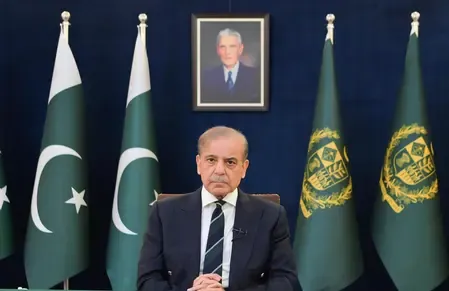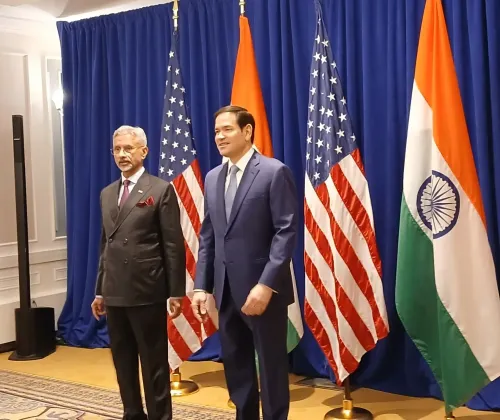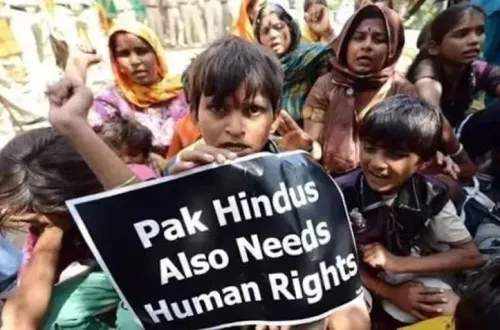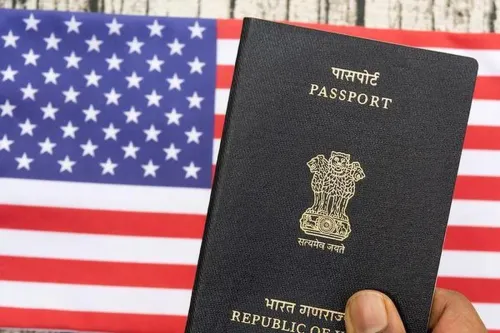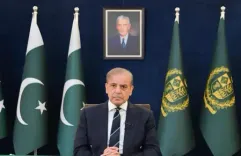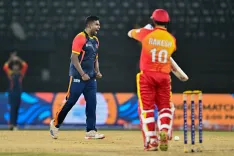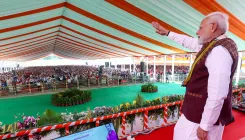What Strategic Surprises Does Iran's Top General Warn About?
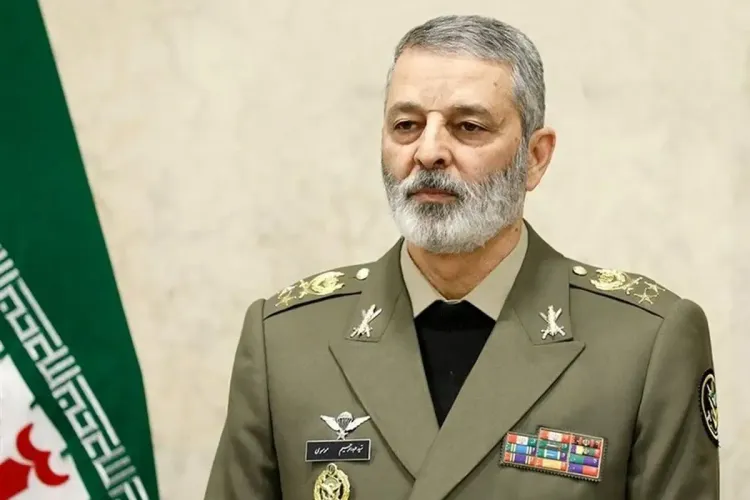
Synopsis
Key Takeaways
- Iran's readiness to respond to aggression is emphasized.
- Strategic surprises are a core element of Iran's military strategy.
- The importance of advancing modern defense technologies is highlighted.
- Mousavi's appointment follows significant military losses.
- Iran's military is committed to turning challenges into opportunities.
Tehran, Sep 22 (NationPress) Major General Abdolrahim Mousavi, the Chief of Staff of the Iranian Armed Forces, emphasized Iran's defensive preparedness on Monday, cautioning adversaries about potential strategic surprises in reaction to any acts of aggression, according to local media.
Mousavi delivered this message to commemorate the anniversary of the initiation of the Iraqi-imposed war on Iran during the 1980s. He highlighted Israel's failure in a 12-day conflict this past June.
He stated, “Iran’s indigenous military and defense capabilities, its regional strengths, and the resolute actions of the Iranian Armed Forces have successfully thwarted hostile agendas. The Islamic Republic will not remain passive against threats, instead transforming challenges into opportunities to showcase its national, regional, and international strength,” as reported by Iran's semi-official Tasnim News Agency.
The senior commander insisted that the advancement of modern defense technologies, the fortification of deterrent capabilities, and preparations to tackle hybrid warfare—especially the cognitive warfare waged by adversaries—should be prioritized.
Mousavi reassured the Iranian populace that the armed forces, relying on strategic surprises, are fully equipped to meet any threats from oppressive powers with responses that will be timely, decisive, regret-inducing, and beyond imagination.
His appointment as the new Chief Commander of the army and the Aerospace Division of the Islamic Revolution Guards Corps (IRGC) came from Supreme Leader Ali Khamenei after Israel conducted airstrikes on Tehran and other Iranian cities in June.
This appointment followed the assassination of his predecessor, Major General Mohammad Bagheri, during the Israeli airstrikes.
Besides Bagheri, IRGC Commander Major General Hossein Salami, Commander of Iran's Khatam al-Anbia Central Headquarters Major General Gholam Ali Rashid, and six Iranian nuclear scientists were also killed in the attacks.

